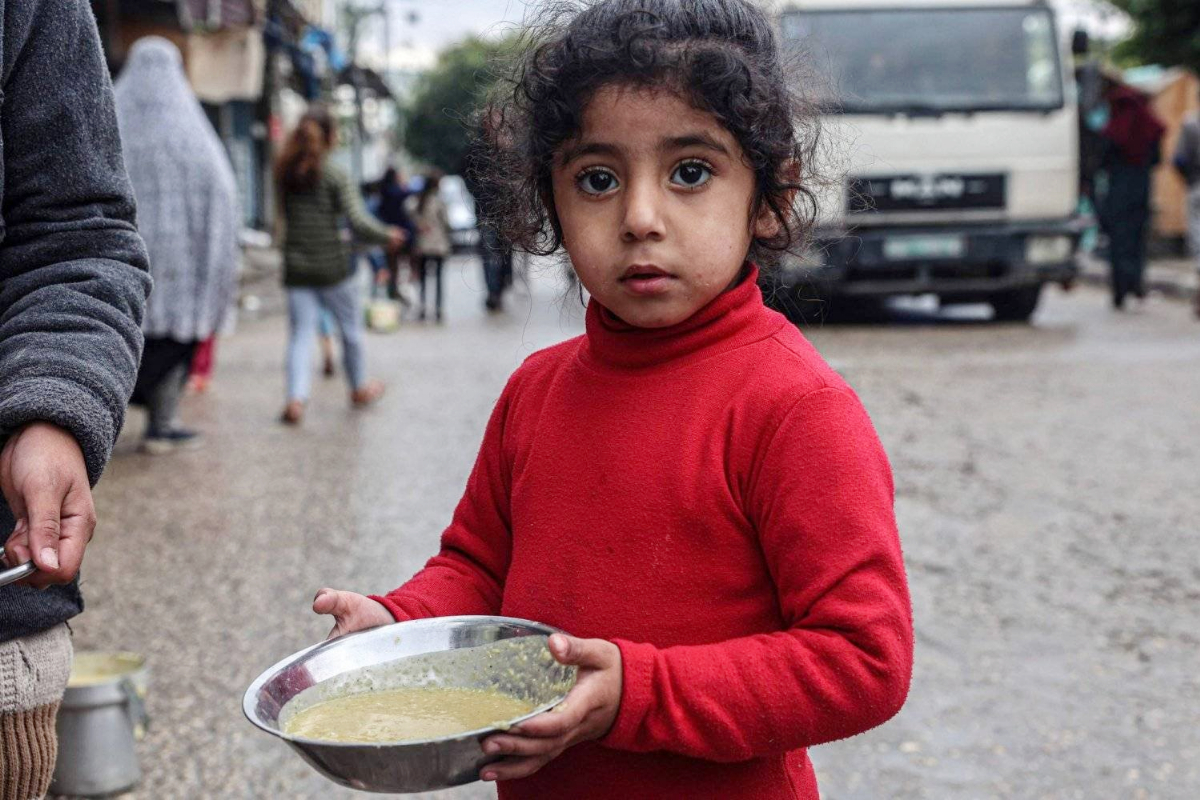UNITED NATIONS: More than 1.8 million Palestinians in Gaza are experiencing “extremely critical” levels of hunger, with 70 per cent of crop fields destroyed and livelihoods decimated during the ongoing Israeli military offensive, a UN-backed food security assessment released .
Figures from the Integrated Food Security Phase Classification (IPC) system show that 133,000 people – or 6 per cent of the enclave’s population – are already experiencing Phase 5 or “catastrophic” food insecurity.
It’s feared this number could rise to around 345,000 people – or 16 per cent of the entire population – between the winter months of November and April next year.
“The risk of famine persists across the whole Gaza Strip. Given the recent surge in hostilities, there are growing concerns that this worst-case scenario may materialize,” the assessment noted.
Secretary-General Antonio Guterres is alarmed by the IPC report’s findings amid high displacement and restrictions on humanitarian aid flows, UN Deputy Spokesperson Farhan Haq told reporters during Thursday’s regular news briefing in New York.
“One year into the conflict, famine looms. This is intolerable.”
The Secretary-General is also calling on Israel to immediately reopen all crossing points, Farhan Haq added.
In addition, bureaucratic impediments must be removed, and law and order must be restored inside Gaza so that UN agencies can deliver lifesaving humanitarian assistance, Mr Haq emphasized.
The IPC assessment also stressed that only through widespread access to adequate food, medical supplies, water, and basic services across the Gaza Strip, can the risk of a rapid descent into famine be contained.
It calls for an immediate, unconditional and sustained ceasefire, restoration of food systems, and better prevention and management of rising and acute malnutrition.
Blanket supplementary feeding programmes and infant and young child feeding programmes need to be bolstered, including promotion of breastfeeding and care for non-breastfed infants.
UN agencies for their part continue their efforts to assist all Gazans despite severe challenges, including insecurity, access difficulty, and ongoing evacuation orders and fighting.
The UN Food and Agriculture Organization (FAO), for instance, has prioritised reactivating local food production and restoring the availability of highly nutritious food, especially as the winter season approaches. Even prior to the war, winters in Gaza saw spikes in hunger and malnutrition.
[embedpost slug=”is-yahya-sinwar-hamas-leader-among-those-killed-in-idf-operation”]

